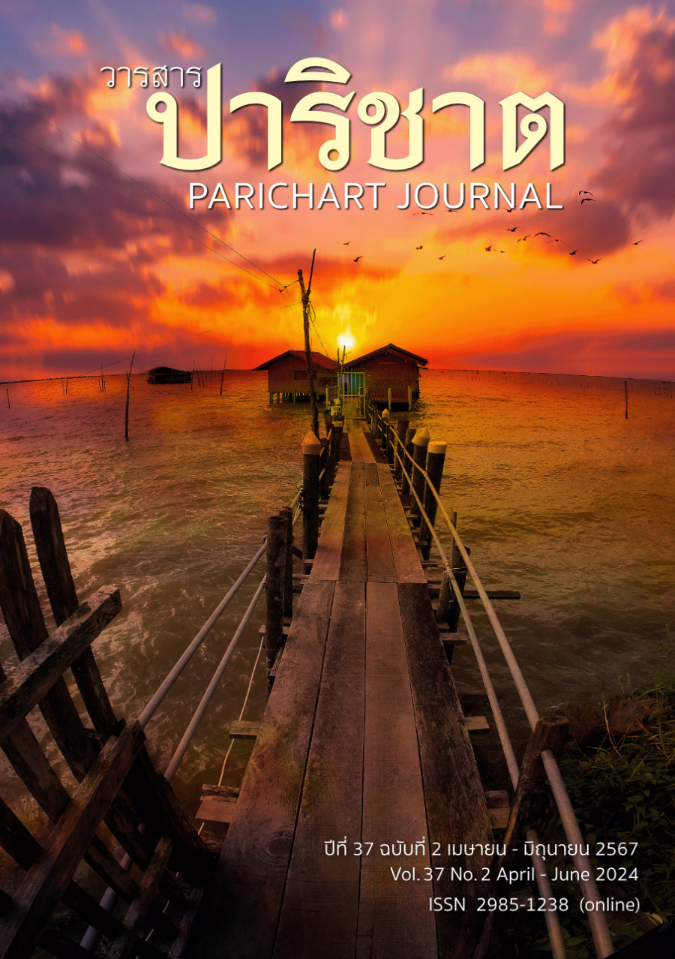Knowledge and Attitudes of Social Sciences and Humanities Researchers Toward Principles of Research Ethics and Ethics Review Application
Main Article Content
Abstract
Undertaking Social Sciences and Humanities research that involves collecting data on or from human participants involves an ethical review from the Institution Review Board. Researchers’ knowledge and attitudes toward an ethical review process is a crucial component in research ethics. The objective of this study was to investigate knowledge and attitudes toward principles of research ethics and an ethical review process among Social Sciences and Humanities researchers. This qualitative study was conducted, using semi-structured interviews with 29 researchers in Social Sciences and Humanities who seek the ethical review from the Institutional Review Board (IRB) of Institution for Population and Social Research at Mahidol University Thailand during July 2020 – December 2021. Interview data was analysed using thematic analysis. The results showed that participants placed importance on knowledge on confidentiality, respect for person, benificence, justice, informed consent, accuracy in research methodology and criteria for the IRB approval that increased the chances of getting the approval. The participant’s attitudes appeared to focus toward good ethical practices in research, proper ethical review process, and knowledge and expertise of the IRB committee. The findings suggest a need for research ethics mechanisms for improving researcher capacity with respect to knowledge and practices in research ethics and methodology. The IRB capacity strengthening is also important to ensure that the appropriate ethical standards are upheld and the researchers increase their knowledge and postitive attitudes toward obtaining an IRB approval.
Article Details

This work is licensed under a Creative Commons Attribution-NonCommercial-NoDerivatives 4.0 International License.
References
Phothisita, C. (2019). Sciences and arts of qualitative research (8th publishing).
United States. National Commission for the Protection of Human Subjects of Biomedical, & Behavioral Research. (1978). The Belmont report: ethical principles and guidelines for the protection of human subjects of research (Vol. 2). Department of Health, Education, and Welfare, National Commission for the Protection of Human Subjects of Biomedical and Behavioral Research.
De Vries, R., DeBruin, D. A., & Goodgame, A. (2004). Ethics review of social, behavioral, and economic research: where should we go from here? Ethics & Behavior, 14(4), 351-368.
James, H., Sanders, I. & Ballengee-Morris, C. (2008). Troubling the IRB: Institutional Review Boards' impact on art educators conducting social science research involving human subjects. Studies in Art Education, 94(4), 311-327.
Lamchang, S., Chanprasir, C., Thaprom, A., & Srisuphan, W. (2014). Analysis of research protocols submitted for ethical review to research ethics committee, Faculty of Nursing, Chiang Mai University in 2014. Nursing Journal, 42, 82-93.
Thaitae, D. (2020). A Study on knowledge and satisfaction toward participating on the training on human research ethic in social sciences, Institute for Population and Social Research, Mahidol University. Mahidol R2R e-Journal, 8(1), 104-116.
Shiju, R., Thankachan, S., Akhil, A., Sharma, P., & Bennakhi, A. (2021). Knowledge and attitude toward ethics committee and ethical research practice among researchers of three sectors: An institutional study in Kuwait. https://doi.org/10.21203/rs.3.rs-596066/v1
El-Dessouky, H. F., Abdel-Aziz, A. M., Ibrahim, C., Moni, M., Abul Fadl, R., & Silverman, H. (2011). Knowledge, awareness, and attitudes about research ethics among dental faculty in the Middle East: A pilot study. International Journal of Dentistry, 2011, 694759. https://doi.org/10.1155/2011/694759.
Namkhan, S. (2018). Study on the ethical awareness of social sciences researchers and determinant of attending a research ethics training. Academic Journal Bangkokthonburi University, 7(1), 96-113.
Mallela, K., Walia, R., Tm, CD., Das, M., Sepolia, S., & Sethi, P. (2015). Knowledge, attitudes and practice about research ethics among dental faculty in the North India. Journal of International Oral Health, 7, 52-56.
Swetha M., Niveditha G., & R., D. (2017). Knowledge, attitude and practice of research ethics among medical faculty in a teaching hospital. International Journal of Basic & Clinical Pharmacology, 6(4), 913-918. https://doi.org/10.18203/2319-2003.ijbcp20171103
Mahidol University (2017). Criteria for consideration and determination of subject groups 2017.Mahidol University.
Nuansang, J. (2018). Ethics in human research and social science research. Journal of Politics, Administration and Law, 10(2), 131-155.
Ferreira, C. M., & Serpa, S. (2018). Informed consent in social sciences research: Ethical challenges. Int'l J. Soc. Sci. Stud., 6, 13.
Lamchang, S., Chanprasir, C., Thaprom, A., & Srisuphan, W. (2014). Analysis of research protocols submitted for ethical review to research ethics committee, Faculty of Nursing, Chiang Mai University in 2014. Nursing Journal, 42, 82-93.
Gul, S., Parveen, Q., & Yousuf, M. I. (2018). Ethics of conducting research in social sciences at the university level in Pakistan. Global Social Sciences Review, 3(4), 486-497.
Noumanong, N. (2023). Strategy to drive the operation of Chiang Mai University research ethics committee. Journal of Professional Routine to Research, 10, 45-54.
Anderson, E. E. (2006). A qualitative study of non-affiliated, non-scientist institutional review board members. Accountability in Research, 13(2), 135-155.
Serpico, K., Rahimzadeh, V., Anderson, E. E., Gelinas, L., & Lynch, H. F. (2022). Institutional review board use of outside experts: What do we know? Ethics & Human Research, 44(2), 26-32.


